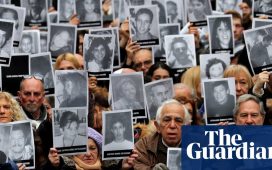The lead-up to the first-ever papal visit to Iraq has been somewhat overshadowed by concerns over its timing. Last month, a surge of coronavirus cases led the Iraqi government to impose a partial lockdown and curfew. The Vatican’s ambassador to Iraq, Archbishop Mitja Leskovar, is currently self-isolating after testing positive for Covid, and there are fears that crowds enthusiastic to see Pope Francis could ignore social distancing rules at public events. Security concerns have also been heightened by the double suicide bombing at a Baghdad market in January, which killed at least 32 people.
The Iraqi authorities are confident that the risks can be managed. But given the circumstances, there was certainly a case for delaying the trip, which begins on Friday and will last four days. The pope’s determination to go ahead testifies to the significance he attaches to a visit that sums up two key themes of his papacy: the need to develop genuine inter-faith dialogue with Islam, and a non-sectarian vision of the church as a “field hospital”, where the spiritual wounds of the suffering are healed.
On Saturday, in the city of Najaf, a holy city for Shia Muslims, Francis will meet the Grand Ayatollah Ali al-Sistani, Iraq’s leading Shia cleric and one of the world’s most influential Muslim leaders. He will also visit Christian communities in Baghdad and in Iraq’s north, where thousands of believers were killed by occupying Islamic State forces between 2014 and 2017. Many more fled Iraq altogether. Since the disastrous Anglo-American invasion in 2003 unleashed a cycle of violence and sectarianism, the estimated Christian population of the country has plummeted from around 1.5 million to between 200,000 and 300,000. A message of inter-faith tolerance and solidarity will be symbolised by a joint prayer service at the ancient archeological site of Ur, believed to be the birthplace of Abraham. The ceremony will be attended by Yazidis and other Iraqi religious minorities, as well as Muslims and Christians.
Following the 9/11 attacks and the Iraq war, the notion of a clash of civilisations between Christianity and Islam fuelled the growth of violent religious extremism, with tragic and bloody consequences. Christian minorities in the Middle East and elsewhere have suffered persecution. In parts of Europe and in the United States, the promotion of “cultural Christianity” has become a proxy for thinly-veiled Islamophobia and hostility towards migrants. The pope’s visit to Iraq, which takes as its motto the words of Matthew’s gospel, “You are all brothers”, is intended to challenge such divisions and distortions of religious faith. Two years ago, Pope Francis joined with the grand imam of Cairo’s al-Azhar mosque, Sheikh Ahmed al-Tayeb, one of the world’s leading Sunni clerics, in a groundbreaking call for a cross-faith commitment to human fraternity. In an era of cultural and religious polarisation, alliances such as these are desperately needed to create a counter-narrative. Pope Francis’s trip, and his meeting with the grand ayatollah, will hopefully prove to be landmark moments in that crucial task.





